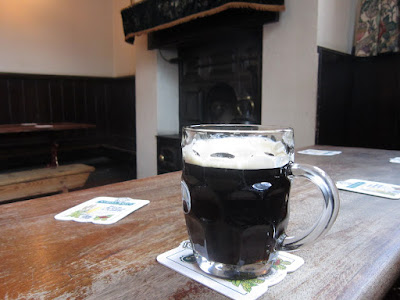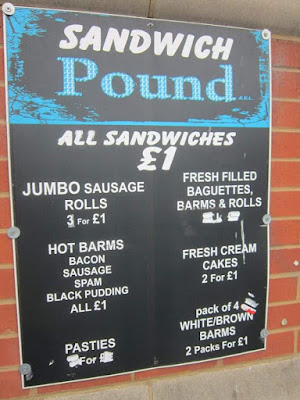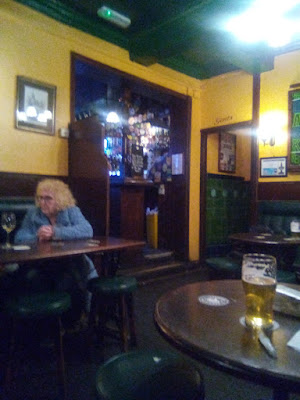I've just finished reading Keg, an overview of British brewing in the seventies by Ron Pattinson.
I was born at the start of the decade so only have fragmentary memories of the mid to late seventies, but certain things continued into and up to the end of the eighties, when I began drinking in pubs.
The consolidation of British brewing in the sixties into the Big Six national groups (Allied, Bass, Courage, Scottish & Newcastle, Watneys and Whitbread) with their large tied estates only began to break up after the introduction of the Beer Orders in 1989 - the first pub I drank in as a teenager was a Whitbread house, originally built by Manchester brewery Chester's and acquired by them when they bought Threlfalls in 1967, which finally shut last summer. The lack of choice and imposition of overpriced keg and bland national cask brands by them was a major factor in the formation of the Campaign for Real Ale in 1971 and the Big Six became their primary target throughout the seventies and eighties, although the fight against them ultimately backfired as they all subsequently sold up to global brewers with even less interest in cask beer or transformed themselves into non-brewing hotel, leisure and pub companies.
The seventies also saw lager's rise to dominance in the draught beer market, with the section on it here a snapshot of the longer, and fascinating, version in another of Ron's books, Lager.
Things which Ron mentions that I recall from the late eighties and early nineties, and which have either now disappeared or become far less common, include outside toilets, afternoon closing, drink driving, bottle-conditoned Guinness, milk stout, bottled beer mixed with draught, and not having a problem being served under the legal drinking age of 18 (the first place I drank draught beer as a 16 year old was a Labour club, after joining the Young Socialists in the 1987 General Election campaign, and which somewhat ironically is now a children's nursery. Around the same time, a couple of mates and myself sipped halves of Boddies bitter at dinnertime in a rather rough Salford estate pub, on a break from a Sixth Form thing across the road at the university, in our school uniforms).
Smoking was of course ubiquitous and unremarked upon in pubs - the idea that it would become illegal within a couple of decades would have seemed incredible to most drinkers had it crossed our minds (I had an old coat that I only wore to my very smoky local and which stank of tobacco until I hung it out to air the next day). Other things in pubs that seemed immovable back then included men selling seafood on a Friday night and the football newspaper (pink in Manchester) on a Saturday evening, football pools coupon collectors and darts boards. You still occasionally saw older women having bottles and jugs filled with draught beer to take home. I'm not sure what the reaction to that request would be now, or to heavy drinking during working hours (Friday afternoons at Stockport social security office, where I worked in my late twenties and early thirties, were never the most productive after our extended dinnertime session at the Robbies pub round the corner).
I also recall as a kid in the seventies seeing lots of home brewing kits for sale in high street shops, the popularity of which was no doubt linked to the rising cost of draught beer in pubs, illustrated in the book by a handy table showing the average price of a pint of bitter increasing from 10p at the start of the decade to 34p at the end of it (Holt's cask bitter cost 79p a pint when I first drank it in 1989, and is now between £3 and £4.50 depending on the area the pub is in and how much the brewery has spent refurbishing it).




















